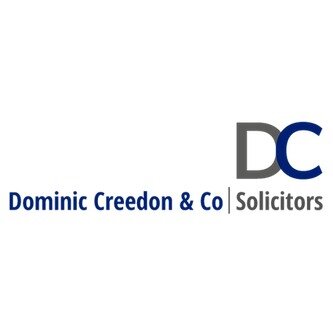Best Probate Lawyers in Cork
Share your needs with us, get contacted by law firms.
Free. Takes 2 min.
List of the best lawyers in Cork, Ireland
About Probate Law in Cork, Ireland
Probate law in Cork, Ireland, involves the legal process of managing the estate of a deceased person. This process includes validating the will, collecting assets, paying debts and taxes, and distributing the remaining assets to the beneficiaries. The Probate Office in Cork, part of the High Court, oversees these procedures to ensure they are conducted legally and fairly.
Why You May Need a Lawyer
There are several common situations where seeking the expertise of a probate lawyer is beneficial:
- Complex Estates: Navigating estates with numerous assets, properties, and investments can be intricate and time-consuming.
- Disputes Among Heirs: Conflicts between beneficiaries over the distribution of assets can require legal intervention.
- Tax Implications: Understanding and managing the tax responsibilities associated with the deceased's estate can be challenging.
- Non-Resident Executors: Executors who do not reside in Ireland may need local legal representation to effectively manage the estate.
- Challenged Wills: If the validity of a will is contested, legal counsel is crucial to navigate the proceedings.
Local Laws Overview
Probate laws in Cork are governed by both national and local statutes. Key elements include:
- Succession Act 1965: This legislation provides comprehensive guidelines on the distribution of an estate either with or without a will.
- Grant of Probate: If there is a will, the executor must apply for this legal document which gives them the authority to administer the deceased's estate.
- Letters of Administration: If there is no will, or the named executor cannot or will not act, an administrator is appointed to manage the estate.
- Notice to Creditors: Posting public notices is often required to inform creditors of the death and provide an opportunity for them to make claims against the estate.
- Inheritance Tax: Beneficiaries may be liable for Capital Acquisitions Tax (CAT) on inheritances received, depending on their relationship to the deceased and the value of the inheritance.
Frequently Asked Questions
What is probate?
Probate is the legal process of administering the estate of a deceased person, ensuring debts are paid, and assets are distributed according to the will or state laws.
Who can apply for probate?
The executor named in the will typically applies for probate. If there isn't a will, a close relative or beneficiary can apply for Letters of Administration.
How long does the probate process take?
On average, probate can take about 6-12 months, but this can vary based on the complexity of the estate and whether there are any disputes or complications.
Do I need a lawyer for probate in Cork?
While it's not a legal requirement to have a lawyer, professional legal advice can be highly beneficial for navigating complex estates, handling disputes, and ensuring compliance with legal obligations.
What happens if there is no will?
If there is no will, the estate is distributed according to the rules of intestacy laid out in the Succession Act 1965. An administrator will be appointed to manage the estate.
What are the costs associated with probate?
Costs can vary but typically include court fees, legal fees, and possibly valuation fees for assets. Consulting a probate lawyer can provide a more precise estimate based on your situation.
Can a will be contested?
Yes, a will can be contested on various grounds, including lack of testamentary capacity, undue influence, or improper execution. Legal counsel is recommended for such cases.
How are taxes handled during probate?
The executor or administrator is responsible for paying any outstanding taxes from the deceased’s estate, including inheritance taxes that may apply to beneficiaries.
What if someone disagrees with the executor’s actions?
If there is a disagreement with the way the executor is handling the estate, legal action can be taken, and the matter can be brought before the Probate Court.
What should I do if I’m named executor in a will?
If you're named as an executor, familiarize yourself with the will and the estate, gather necessary documents, and consider consulting a probate lawyer to guide you through the process.
Additional Resources
For more information or assistance, the following resources may be helpful:
- The Probate Office: Provides guidelines and application forms for probate and letters of administration.
- The Revenue Commissioners: Offers detailed information on Capital Acquisitions Tax (CAT) and other tax obligations.
- Citizens Information: An excellent source for understanding legal rights and obligations in Ireland.
- Law Society of Ireland: Can help you find a qualified probate lawyer in Cork.
Next Steps
If you need legal assistance with probate, consider the following steps:
- Gather all relevant documents, including the will, death certificate, and any asset lists.
- Schedule a consultation with a qualified probate lawyer to discuss your specific needs and circumstances.
- Prepare any questions you have about the process, costs, and timelines.
- Follow the legal advice provided by your lawyer to ensure the process is handled efficiently and correctly.
Taking these steps can help you navigate the complexities of probate law in Cork with greater confidence and ease.
Lawzana helps you find the best lawyers and law firms in Cork through a curated and pre-screened list of qualified legal professionals. Our platform offers rankings and detailed profiles of attorneys and law firms, allowing you to compare based on practice areas, including Probate, experience, and client feedback.
Each profile includes a description of the firm's areas of practice, client reviews, team members and partners, year of establishment, spoken languages, office locations, contact information, social media presence, and any published articles or resources. Most firms on our platform speak English and are experienced in both local and international legal matters.
Get a quote from top-rated law firms in Cork, Ireland — quickly, securely, and without unnecessary hassle.
Disclaimer:
The information provided on this page is for general informational purposes only and does not constitute legal advice. While we strive to ensure the accuracy and relevance of the content, legal information may change over time, and interpretations of the law can vary. You should always consult with a qualified legal professional for advice specific to your situation.
We disclaim all liability for actions taken or not taken based on the content of this page. If you believe any information is incorrect or outdated, please contact us, and we will review and update it where appropriate.















